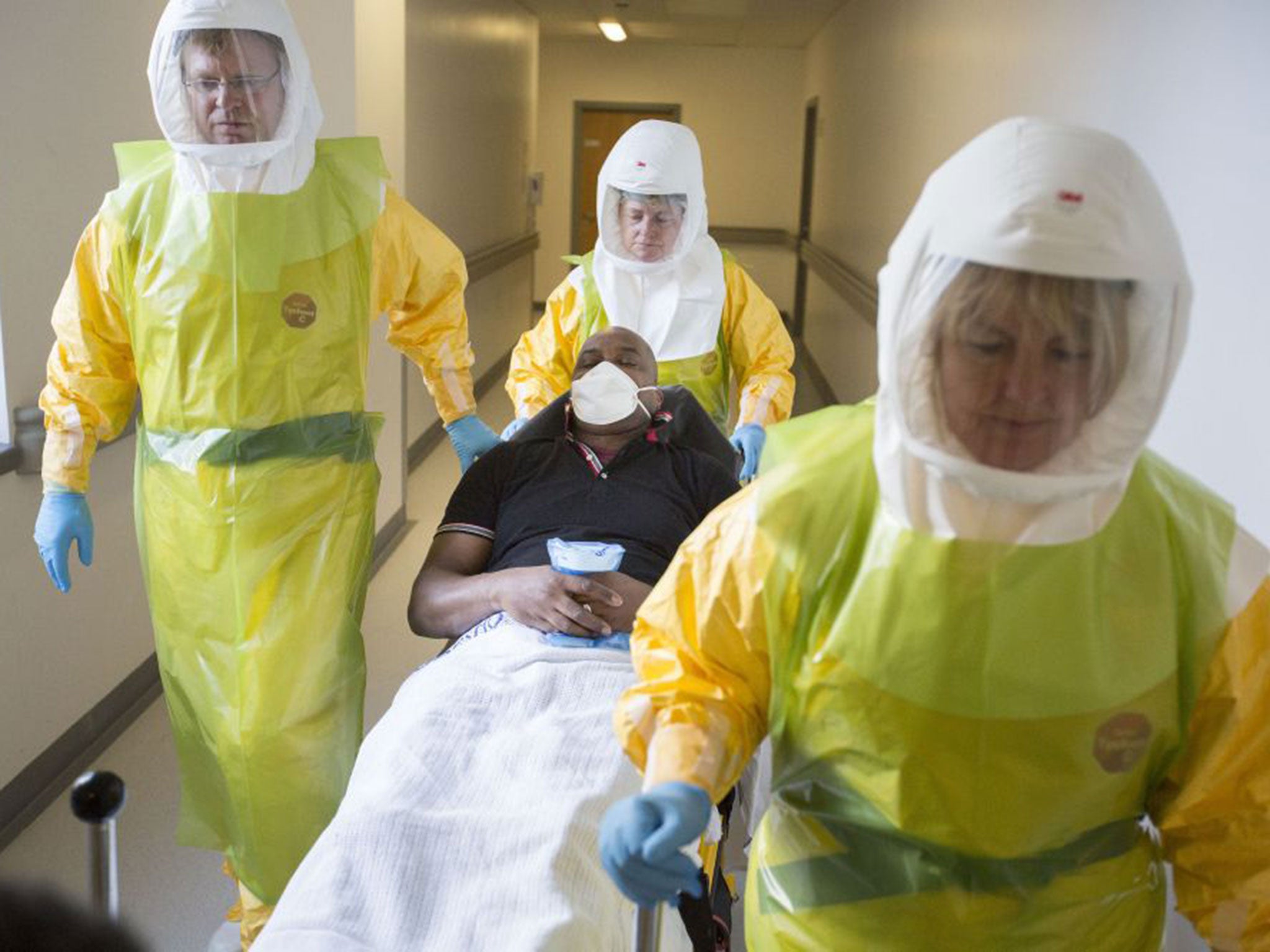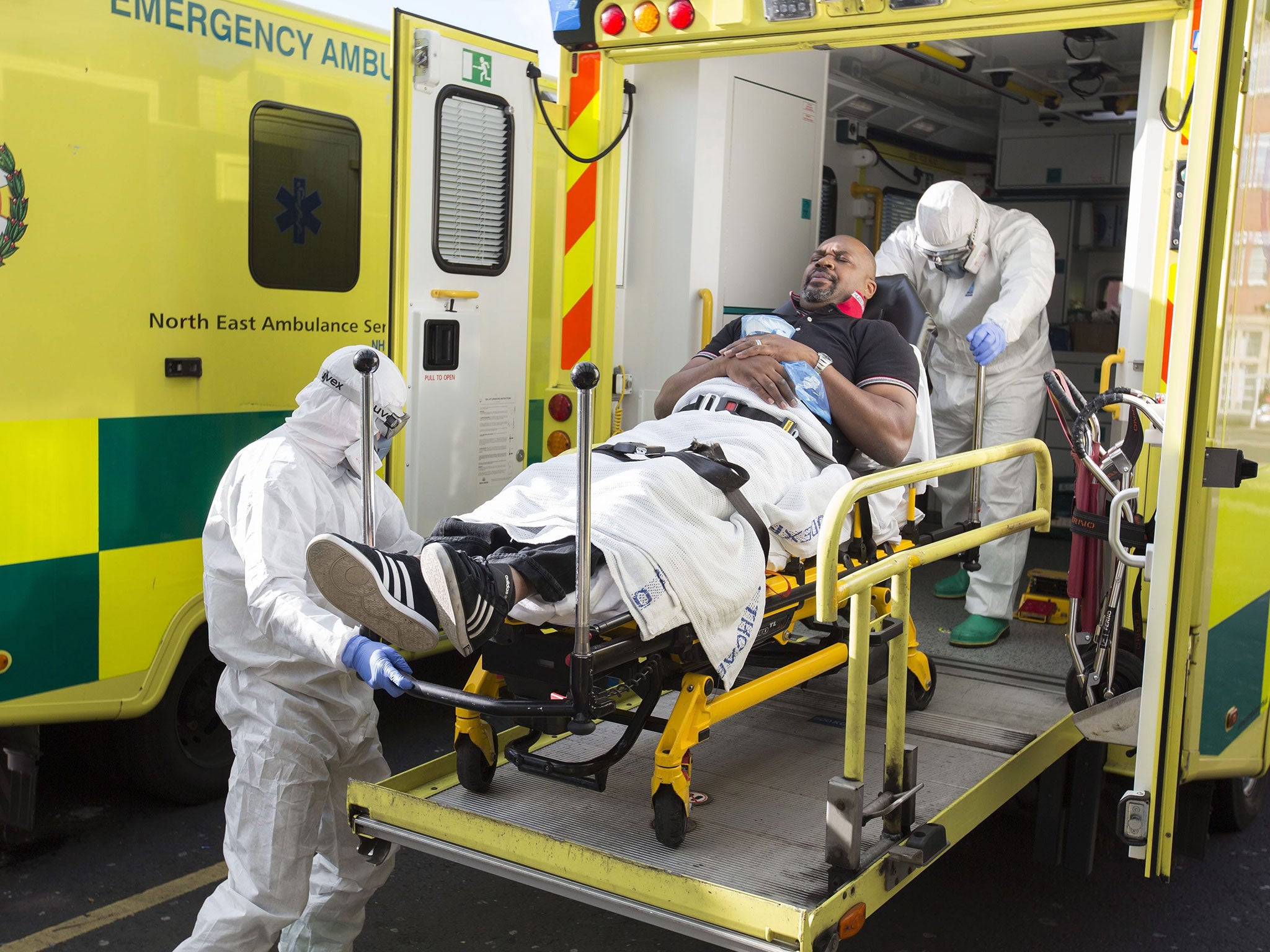Ebola UK: What happens in hospitals and GP surgeries if a suspected patient walks in?
Officials insisted the NHS is well-prepared following scares over the weekend

Your support helps us to tell the story
From reproductive rights to climate change to Big Tech, The Independent is on the ground when the story is developing. Whether it's investigating the financials of Elon Musk's pro-Trump PAC or producing our latest documentary, 'The A Word', which shines a light on the American women fighting for reproductive rights, we know how important it is to parse out the facts from the messaging.
At such a critical moment in US history, we need reporters on the ground. Your donation allows us to keep sending journalists to speak to both sides of the story.
The Independent is trusted by Americans across the entire political spectrum. And unlike many other quality news outlets, we choose not to lock Americans out of our reporting and analysis with paywalls. We believe quality journalism should be available to everyone, paid for by those who can afford it.
Your support makes all the difference.After Ebola scares shut down a walk-in centre in Coventry and reportedly “panicked” staff at a London A&E over the weekend, officials have insisted the UK is well-prepared to deal with any cases.
Emergency drills have been staged using actors to play Ebola patients and enhanced screening for the deadly disease is being introduced at major airports.
Several isolation units have been prepared to handle patients, hospitals are on alert and immigration centres, universities and other places that could see visitors from affected countries have also been given guidance on spotting symptoms.
Dr Brian McCloskey, director of global health at Public Health England, said in the event of any new cases, isolation protocols and protections would stop the spread.
“It is important to remember that for Ebola to be transmitted from one person to another contact with blood or other body fluids are needed,” he added.

“As such, if England was to see a case of Ebola this will not result in an outbreak here.
“Our robust, well-developed and well-tested NHS systems for managing unusual infectious diseases are…proven to be effective.”
Public Health England has drawn up plans for all hospitals, walk-in centres and GP surgeries on how they should treat a suspected Ebola patient.
What happens if someone with Ebola visits a GP surgery?
If someone with the symptoms of Ebola visits a walk-in centre, GP or seeks other primary care, doctors will assess the main risk factors.
Anyone with a fever over 38C and who has visited the affected countries of Guinea, Liberia, Sierra Leone, Nigeria or Senegal in the last 21 days will be put under protective measures.
This is also the case for someone with a fever who has not visited those countries but has come into contact with an infected person, bodily fluids or soiled clothes.
The possible Ebola patient would be removed from the waiting room and put an isolated side room as urgent clinical advice is sought from specialists. Staff would wear protective equipment including gloves and masks.
He or she would then be transferred to hospital in a special ambulance for tests to confirm whether the person has Ebola or another disease.
All rooms and facilities they had been in contact with would then be decontaminated.
What if an Ebola patient arrives at A&E?
A suspected Ebola patient could be transferred to an acute hospital’s emergency department from a GP surgery, by ambulance or walk in of their own accord.
They would be isolated in the circumstances listed above and questioned by staff wearing protective suits to establish their travel history, symptoms and anyone else they have been in contact with.
The suspected case would then be discussed with a specialist and tests carried out for Ebola as well as malaria and other diseases to eliminate all possibilities.
While tests were being carried out the Imported Fever Service and local health protection team would be informed to ensure all precautions were being taken.
What if someone with Ebola calls a doctor?
Anyone with the symptoms of Ebola and risk factors above who calls a surgery or walk-in centre would be transferred to an acute hospital trust with infection controls in place.
What happens when a patient tests positive for Ebola?
They would be transferred to a hospital with a high-level isolation unit and treated according to strict protocols to stop the disease spreading to other patients or staff.
How would they be treated?
There is no proven treatment or cure for Ebola but the use of experimental medicines has been approved.
William Pooley recovered after being given the drug ZMapp, although it is impossible to tell if it was responsible for his recovery, but supplies have since run out.
Severely ill patients require intensive supportive care, which may include rehydration with intravenous fluids.
Join our commenting forum
Join thought-provoking conversations, follow other Independent readers and see their replies
Comments